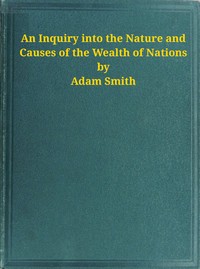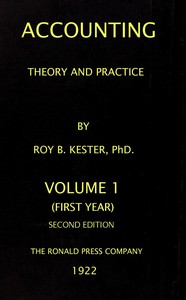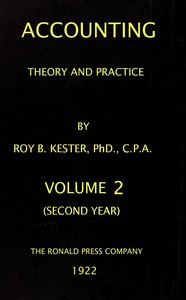Patrick Murtha
Reader
This is a big bucket. These fields runs the gamut from the intellectually stimulating to sheer garbage. As a former high school teacher of the social sciences, though, I always encouraged my university-bound students to take Intro to Psychology and Intro to Macro- and Micro-economics as soon as they arrived there, because an understanding of the basic concepts of those subjects is mandatory for functioning in the modern world.
When I was at Tec Prepa in Culiacán, I would read any volume in English in the library (which served both the high school and university populations) Some of the following titles stem from that time, books I might not have taken up otherwise, but that in most cases I really benefited from.
Charles Bowden, Murder City: Ciudad Juárez and the Global Economy's New Killing Fields (see post below)
Samuel Cameron, The Economics of Sin (a supremely entertaining academic book!)
Edward Chancellor, Devil Take the Hindmost: A History of Financial Speculation (I recommend to all)
Andreas Fahrmeir, Citizenship: The Rise and Fall of a Modern Concept (so dry that it was not like reading someone’s PhD thesis, but the NOTECARDS for that thesis)
Andrea Finkelstein, Harmony and the Balance: An Intellectual History of Seventeenth-Century English Economic Thought (not light reading, but stimulating)
John Gibler, To Die in Mexico (better than the Bowden book above)
David Harvey, A Companion to Marx’s Capital (invaluable guide)
Robert L. Heilbroner, The Worldly Philosophers (nicely readable survey of economic thought)
Karl Marx, Capital, Volume One (yes, I did it, read every word! Now for Volumes Two and Threej
Karl Marx, Results of the Immediate Process of Production (an appendix to the Penguin edition of Capital, Volume One)
Octavio Paz, The Labyrinth of Solitude and Other Writings (one of the best books on Mexico)
Samuel Ramos, Profile of Man and Culture in Mexico (a key source for Paz)
Saskia Sassen, Losing Control? Sovereignty in an Age of Globalization
Albion W. Small, The Cameralists: The Pioneers of German Social Polity (from 1910, one of my favorite books on this list, providing a magisterial survey of a neglected - to say the least - school of thought)
Alexis de Tocqueville, Democracy in America (essential, in the unabridged text. Still one of the great books on the US)
Edward B Tylor, Primitive Culture (huge pioneering work of anthropology from 1871)
Thomas M. Wilson/Hastings Donnan, Border Identities: Nation and State at International Frontiers (got some good ideas out of this essay collection)
Brian Winston, Media Technology and Society (thought-provoking)
Diana Wood, Medieval Economic Thought (similar to Finkelstein above)
When I was at Tec Prepa in Culiacán, I would read any volume in English in the library (which served both the high school and university populations) Some of the following titles stem from that time, books I might not have taken up otherwise, but that in most cases I really benefited from.
Charles Bowden, Murder City: Ciudad Juárez and the Global Economy's New Killing Fields (see post below)
Samuel Cameron, The Economics of Sin (a supremely entertaining academic book!)
Edward Chancellor, Devil Take the Hindmost: A History of Financial Speculation (I recommend to all)
Andreas Fahrmeir, Citizenship: The Rise and Fall of a Modern Concept (so dry that it was not like reading someone’s PhD thesis, but the NOTECARDS for that thesis)
Andrea Finkelstein, Harmony and the Balance: An Intellectual History of Seventeenth-Century English Economic Thought (not light reading, but stimulating)
John Gibler, To Die in Mexico (better than the Bowden book above)
David Harvey, A Companion to Marx’s Capital (invaluable guide)
Robert L. Heilbroner, The Worldly Philosophers (nicely readable survey of economic thought)
Karl Marx, Capital, Volume One (yes, I did it, read every word! Now for Volumes Two and Threej
Karl Marx, Results of the Immediate Process of Production (an appendix to the Penguin edition of Capital, Volume One)
Octavio Paz, The Labyrinth of Solitude and Other Writings (one of the best books on Mexico)
Samuel Ramos, Profile of Man and Culture in Mexico (a key source for Paz)
Saskia Sassen, Losing Control? Sovereignty in an Age of Globalization
Albion W. Small, The Cameralists: The Pioneers of German Social Polity (from 1910, one of my favorite books on this list, providing a magisterial survey of a neglected - to say the least - school of thought)
Alexis de Tocqueville, Democracy in America (essential, in the unabridged text. Still one of the great books on the US)
Edward B Tylor, Primitive Culture (huge pioneering work of anthropology from 1871)
Thomas M. Wilson/Hastings Donnan, Border Identities: Nation and State at International Frontiers (got some good ideas out of this essay collection)
Brian Winston, Media Technology and Society (thought-provoking)
Diana Wood, Medieval Economic Thought (similar to Finkelstein above)





